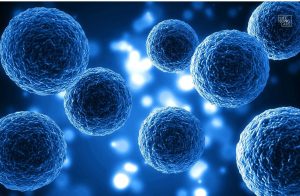Understanding Autophagy and Its Role in Natural Healing
January 20, 2025

Autophagy, a fundamental biological process inherent in all human cells, plays a crucial role in natural healing and maintaining cellular health. The term autophagy, derived from the Greek words for “self” (auto) and “eating” (phagy), aptly describes this process where cells systematically degrade and recycle their own components. This article delves into the mechanisms of autophagy, its implications for health and disease, and its potential as a target for therapeutic intervention.
Mechanisms of Autophagy
Autophagy is initiated in response to various cellular stresses, including nutrient deprivation, oxidative stress, and the presence of damaged organelles or proteins. The process involves several key steps:
- Induction: Triggered by cellular stress or nutrient scarcity, signaling pathways, particularly those involving the mammalian target of rapamycin (mTOR) and AMP-activated protein kinase (AMPK), activate autophagy. While mTOR suppresses autophagy when nutrients are abundant, AMPK promotes it under energy stress.
- Vesicle Nucleation: Cells form a double-membraned vesicle known as an autophagosome around the cellular material designated for degradation.
- Vesicle Expansion and Completion: The autophagosome expands to fully enclose the damaged or superfluous cellular components.
- Fusion with Lysosomes: The autophagosome fuses with a lysosome, forming an autolysosome where the contents are broken down by lysosomal enzymes.
- Degradation and Recycling: The breakdown products, such as amino acids and fatty acids, are recycled back into the cell’s cytoplasm for reuse in synthesis of new proteins and energy production.
Role in Health
Autophagy is essential for maintaining cellular integrity and function by removing damaged cellular components, thus preventing diseases like cancer, neurodegeneration, and infections. Key health implications include:
Disease Prevention: By removing potentially harmful components, such as misfolded proteins and damaged organelles, autophagy prevents the accumulation of cellular debris that can lead to diseases like Alzheimer’s, Parkinson’s, and various cancers.
Longevity: Research in model organisms from yeast to mammals has shown that enhancing autophagy can extend lifespan. This is thought to be due to its role in alleviating metabolic stress and preventing the accumulation of cellular damage.
Immune Response: Autophagy plays a critical role in controlling infections by degrading pathogens captured inside cells and presenting their fragments on the cell surface to the immune system, a process known as antigen presentation.
Inflammation Regulation: Autophagy helps regulate inflammation by controlling the release of inflammatory cytokines and degrading inflammasomes, which are components involved in the activation of inflammatory responses.
Role in Disease
While autophagy generally promotes health, its role in disease is complex and can be dualistic:
Cancer: Autophagy can suppress tumor formation by degrading oncogenic proteins and organelles that could lead to cancer. However, in established cancers, some cells may use autophagy to survive under the stress of rapid growth and anti-cancer therapies.
Neurodegenerative Diseases: Inadequate autophagy is linked to the accumulation of protein aggregates, characteristic of diseases such as Alzheimer’s and Parkinson’s. Enhancing autophagy is seen as a potential therapeutic strategy for these conditions.
Infections: Some pathogens can hijack autophagic machinery to promote their own survival inside cells. Understanding this interaction is crucial for developing treatments that prevent pathogen exploitation of autophagy.
Therapeutic Implications and Future Directions
The modulation of autophagy holds significant therapeutic potential. Strategies to enhance autophagy can be particularly beneficial in diseases related to aging and cellular damage, such as neurodegenerative diseases. Conversely, inhibiting autophagy might be effective in certain cancers where tumor cells rely on autophagy for survival.
Current research is exploring several approaches to modulate autophagy:
Pharmacological Agents: Drugs like rapamycin (an mTOR inhibitor) and metformin have been shown to activate autophagy and are being studied for their potential to treat diseases characterized by inadequate autophagy.
Dietary Interventions: Caloric restriction and intermittent fasting are known to enhance this biological process, and are being investigated for their longevity and health benefits.
Genetic Manipulation: Gene editing tools are being used to modify the expression of genes involved in this biological process is to understand their role in various diseases and to develop targeted therapies.
Autophagy is a vital cellular process with profound implications for health and disease. Its role in natural healing and the maintenance of cellular homeostasis highlights its importance as a therapeutic target.
Continued research into the mechanisms and effects of autophagy will be crucial for harnessing its potential to combat disease and improve human health. As understanding of this complex process deepens, the development of autophagy-modulating therapies could revolutionize treatment paradigms across a multitude of diseases.
Need more topics related to health and wellness? Check out this section: https://lifelonglabs.com/wellness/
Of course, don’t forget to follow us on Instagram, Facebook, LinkedIn, and YouTube to get your daily dose of wellness, longevity and leadership inspiration!
MEDIA RESOURCES
Media Inquiry? Contact Public Relations
CONNECT WITH US
Video
Lifelong Labs Helps People Live Longer, Healthier and Happier
SUBSCRIBE
Subscribe now and unlock the secret to reversing aging!
By clicking “Subscribe” you agree to our Privacy Policy and consent to contact you about our relevant content, products and services.

